Scientific programme > Keynote speakers
Keynote speakers
Opening Conference
Dr. Balbina Nogales
University of the Balearic Islands, Spain
Balbina Nogales is a Lecturer in Microbiology at the University of the Balearic Islands. Since her PhD she has done research in the field of environmental microbiology, mainly in the study in microbial communities of polluted environments. The main research focus of her group is the study of coastal microbial communities with different levels of anthropogenic impact, mainly by hydrocarbon pollution, and the role of marine bacterial groups in the degradation of these pollutants. More recently, the group has extended their research to the topic of plastic degradation by marine bacteria. The group combines global approaches of community analysis (metagenomics) with studies on the genomics, biochemistry and physiology of cultivated pollutant degrading bacteria by proteomics and metabolomics.
|
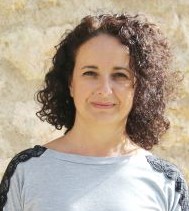
|
Session "Impact of contaminant on microbial diversity and functions"
Dr. Sofie Thijs
Center for Environmental Sciences, Hasselt University, Belgium
Sofie Thijs is postdoctoral researcher at the Center for Environmental Sciences (University of Hasselt). Her main research focus is on utilising and understanding plant-microbe interactions for soil remediation and sustainable crop growth. She uses both cultivation-based approaches, and metagenomics to disentangle the multitude of signals and interaction pathways between plant-microbe and pollutants.
Her current work is on implementing and merging molecular biology tools in phytoremediation feasibility and monitoring studies, to inform and predict biodegradation processes, and suggest bioaugmentation strategies to speed up pollution degradation.
|
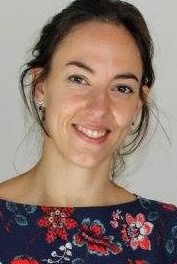
|
|
|
|
Session "Microbial roles in contaminant fate and bioremediation"
Dr. Kathrin Fenner
Department of Environmental Chemistry, Eawag, Switzerland
Dr. Kathrin Fenner is Associate Professor of Environmental Chemistry at the Chemistry Department of the University of Zurich (Switzerland) and a senior scientist and group leader at the Department of Environmental Chemistry at the Swiss Federal Institute of Aquatic Science and Technology (Eawag). Her research focuses on experimental and model-based approaches to gain an in-depth understanding of chemical persistence in the environment. The goal of her research is to not only improve current hazard assessment schemes but also provide tools and design principles for better degradable compounds and efficient approaches to bioremediation. In 2015, she received an ERC Consolidator grant to support this line of research. She has published more than 90 scientific research articles in the field of environmental science. Kathrin chairs the section of “Chemistry and the Environment” of the Swiss Chemical Society, has been member of several ECETOC expert groups and has served as Associate Editor with Environmental Sciences: Water Research & Technology up until recently.
|
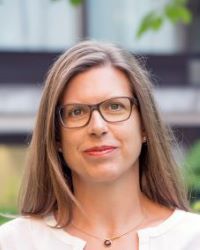 |
Session "Microorganisms as tool for environmental risk assessment"
Dr. Fabrice Martin-Laurent
Agroecologie department, INRAE Dijon, France
F Martin-Laurent was trained as a biochemist and molecular biologist at the University of Burgundy (France). During his PhD he studied genes induced in plants at early stages of endomycorrhizal symbiosis establishment (INRA Dijon, France and Max Plant Institut Marburg, Germany). He worked for CIRAD Forêt at Nanyang University of Technology (Singapore) on microbial inoculation of Accacia mangium for reforestation of degraded soils in South-East Asia. He then worked as a post-doc for the CNRS in Gif-sur-Yvette to study the expression of aquaporins in planta. He was recruited in 1999 as a research fellow in the soil microbiology laboratory of INRA in Dijon to deploy the use of molecular methods to analyse soil microbial communities. Since then he has been developing his research on the ecotoxicological impact of pesticides on soil microorganisms. For 7 years he was the scientific director of a regional center for innovation and technology transfer in the agri-environment of the University of Burgundy. He is co-creator and co-leader of the microbial ecotoxicology network (EcotoxicoMic, https://ecotoxicomic.org/) and also co-leader of the Ecotox network (https://www6.inrae.fr/ecotox/). He is a scientific expert in terrestrial ecotoxicology for standardization bodies (AFNOR, ISO) and regulatory bodies (ANSES and EFSA). He is the head of the Agroecologie department (https://www6.dijon.inrae.fr/umragroecologie_eng/.)
|
Special Session "Fate and impacts of antimicrobials in terrestrial and aquatic environments"
Pr. Joakim Larsson
Department of Infectious Disease, University of Gothenburg, Sweden
Joakim Larsson is a Professor in Environmental Pharmacology at the Department of Infectious Disease, University of Gothenburg, Sweden. He received his PhD in animal physiology in 2000 in Gothenburg, and after two years of guest research in Canada and USA, he decided to combine his interest for the environment with medicine. He became associate professor in human physiology in 2007 and full professor in 2013. From 2016 he is director for the multidisciplinary Centre for Antibiotic Resistance Research (CARe) at University of Gothenburg, involving +100 researchers from six faculties. Larsson has (co)-authored more than 185 papers, and he is among the 1% most highly cited researchers on Web of Science according to Clarivate Analytics.
His earlier work on environmental pollution from drug manufacturing, and his research on selective concentrations of antibiotics has contributed various management initiatives across the world. His current research focus on the environmental dimensions of antibiotic resistance. Ongoing projects include e.g. research on: the role of antibiotics and biocides in the evolution of antibiotic resistance; understanding the evolutionary history of antibiotic resistance acquisition in pathogens; exploration of the environmental resistome for novel resistance genes; surveillance of resistance in the human population using sewage bacteria; environmental transmission of resistant pathogens; as well as both technical and societal measures to reduce environmental pollution with antibiotics and antibiotic resistant bacteria.
|
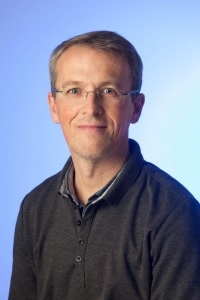
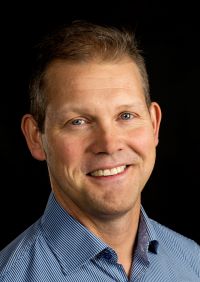
|
|
|
Special session 2 "Microorganisms as tool to evaluate the efficiency of water treatment processest"
Dr. Despo Fatta-Kassinos,
Nireas-International Water Research Center, University of Cyprus
Dr. Despo Fatta-Kassinos is a Professor of the Department of Civil and Environmental Engineering at the University of Cyprus and Director of Nireas-International Water Research Center. The overlying goal of her research is the development and testing of new advanced processes for the degradation/removal of recalcitrant compounds and the inactivation/removal of microbiological contaminants with emphasis on antimicrobial resistance determinants from wastewater, the development of analytical methods for the identification of contaminants of emerging concern in environmental matrices, crops and biota and the assessment of the biological potency of treated urban wastewater and its reuse in the framework of circular economy. With a Chemical Engineering background and further studies in Environmental Management and Education and Environmental Chemical Engineering, her record includes more than 170 publications in refereed journals. She is among the 1% most highly cited researchers on Web of Science according to Clarivate Analytics. She has served as the Vice Chair of the JPI Water between 2015 and 2019 and is now the Chair of the Advisory Board of the African Center of Excellence in Water and Environment Research. . In parallel to her academic activities, she has published the children’s book on water, entitled “The Secret Handbook of Blue Circle”.
|
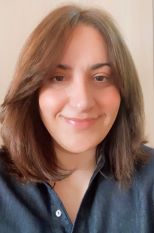 |
Special session 3 "Cell biosensors: from microorganisms to the systems applied to environmental issues"
Dr. Robert S. Marks,
University Ben Gurion, Israel
Prof. Robert S. Marks is a Full Professor at the Ben-Gurion University of the Negev, Israel, at the Department of Biotechnology Engineering, where he created the interdisciplinary Biosensors Laboratory. He has affiliations at The National Institute for Biotechnology in the Negev and the Ilse Kats Centre for Nanotechnology. He is presently the Chair of the Department. He was previously Visiting Adjunct Professor in the NTU-MSE, and a program co-founder and coordinator of the multidisciplinary Singapore NRF CREATE program “Nanomaterials for Water and Energy Management”. Prof. Robert Marks has co-founded, and is the originator of the technologies, for 7 deeptech start ups in Israel, USA, Singapore. Prof. Marks has extensive experience in developing new immuno-biosensors. His work also includes environmental toxicology, such as monitoring water pollution via fiber-optic probes glowing in the presence of toxicants through their associated luminescent bacteria (water on-line monitoring and air toxicity monitoring). His group participated in developing biochips, enzyme nanolithography, nanofluidics, light-sensitive tissue sutures for surgery, and anti-biofilm materials. Most of his developed biosensors were published and validated with real life samples.
He is the Editor-in-Chief of a 2007 2-volume Wiley Handbook in Biosensors and Biochips, edited 5 other books, and founded the Pan Stanford book series ‘the high-tech of biotech’. His is the author of 185+ papers. He has 8 issued patents, as well as, a dozen filed. He has organized 21 international conferences. He was a visiting Professor in lengthy stays in France (Grenoble, Troyes, Paris), Italy (Udine), Finland (Turku), Singapore, USA (Baltimore) and China (Chengdu and Nanjing). He has created an extensive network of collaborations worldwide in most continents, most reflected in publications.
|
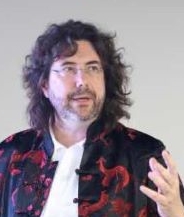
|
|
|
|


